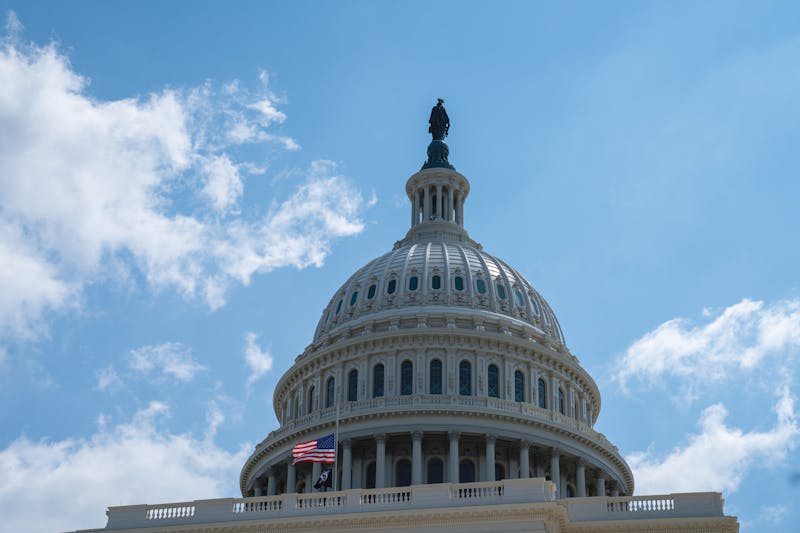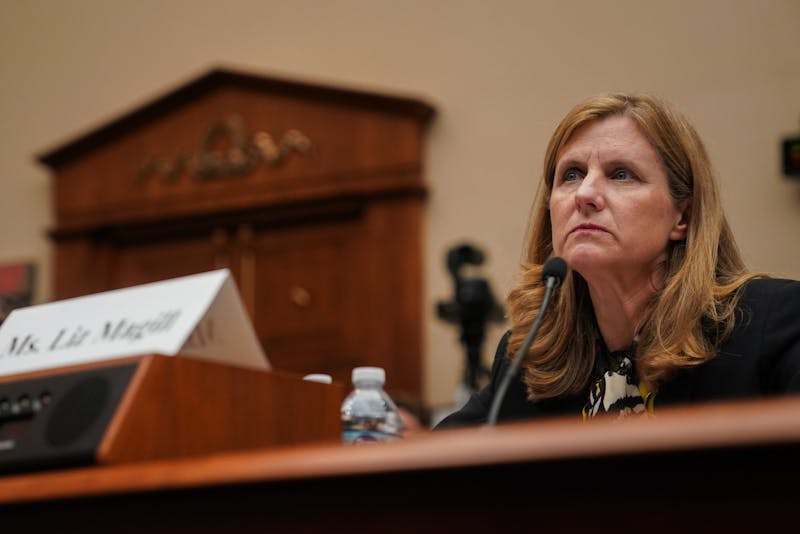
College Hall on Feb. 23.
Credit: Grace ChenPenn faculty spoke to The Daily Pennsylvanian about the future of their diversity, equity, and inclusion research amid federal action and University-wide policy changes.
Professors expressed concerns about the future of federal funding for DEI-related research and a lack of institutional support for their work from Penn. The uneasiness comes after 1968 Wharton graduate and President Donald Trump’s executive order mandating the erasure of initiatives that he claims could violate civil rights laws in federally funded universities such as Penn.
In particular, faculty said that potential funding cuts to federal programs like the National Science Foundation and Institute of Education Sciences would hurt DEI-related research.
“There might not be an Institute for Educational Science in this administration. It might go with the Department of Education,” Co-Faculty Director of the Penn Early Childhood and Family Research Center and Albert M. Greenfield Emeritus Professor of Human Relations John Fantuzzo said, adding that his current IES-funded research could be characterized as “equity research.”
Trump has pushed to dismantle the DOE during his second administration, despite congressional authority and his own policy initiatives standing in the way of him doing so.
“Even though those grants don’t come from the NIH or NSF, where these funding cuts are being proposed, any funding stream affects everybody,” Director of the Gender, Sexuality, and Women’s Studies Program and Communication professor Jessa Lingel said.
While most DEI-related initiatives were not directly affected by NIH cuts, Lingel said that these cuts still hurt their program by affecting the “funding landscape.” In particular, Lingel noted that she expects grants for DEI-related research to become more “competitive.”
Faculty members also expressed concerns about Penn’s commitment to funding and supporting DEI-related research and initiatives amid these threats. Lingel, for example, stated that the GSWS program “hasn’t been able to get written, documented support for the work that we do” from Penn.
”People who work in this area are afraid, and we are frustrated, and we are concerned that we do not have more leadership and do not have more of a documented commitment to our scholarship,” Lingel said. “I expect that when we submit grants, the University will not fund programs that they have funded in the past because they are afraid of being seen to support this highly politicized area.”
In a statement to the DP, Center for the Study of Ethnicity, Race, and Immigration Director and Sociology professor Chenoa Flippen similarly wrote that there was “concern that [the Center’s] entire area of study may be denied support” by Penn.
“Those with ongoing projects are worried that their grants might be canceled mid-award, and those who are developing new projects are wondering whether they will receive full consideration,” Flippen wrote.
Despite this, Lingel said that GSWS and DEI “cannot be separated.”
“The roots of the discipline of gender studies, the roots of the queer theory, of trans theory, are in a commitment to inclusive, equitable, diverse conversations,” Lingel said. “There is no GSWS that doesn’t have a commitment to [those] core values.”
The Daily Pennsylvanian is an independent, student-run newspaper. Please consider making a donation to support the coverage that shapes the University. Your generosity ensures a future of strong journalism at Penn.
Donate












